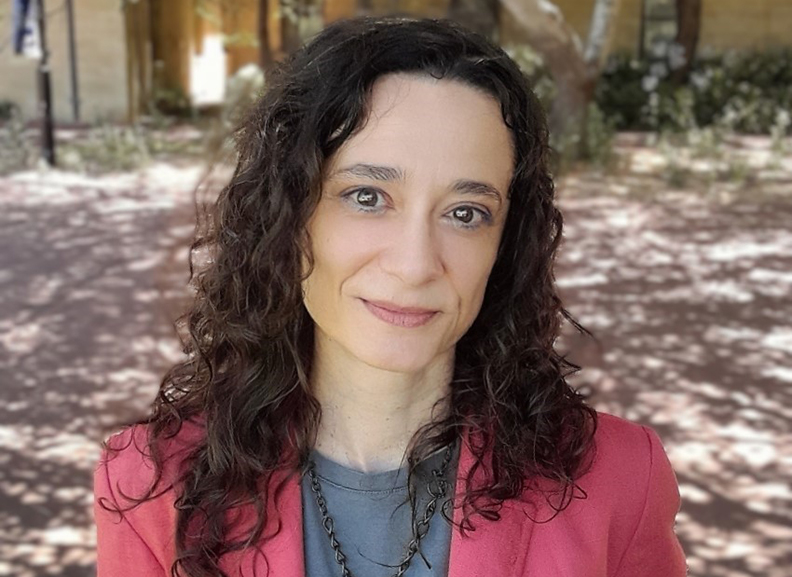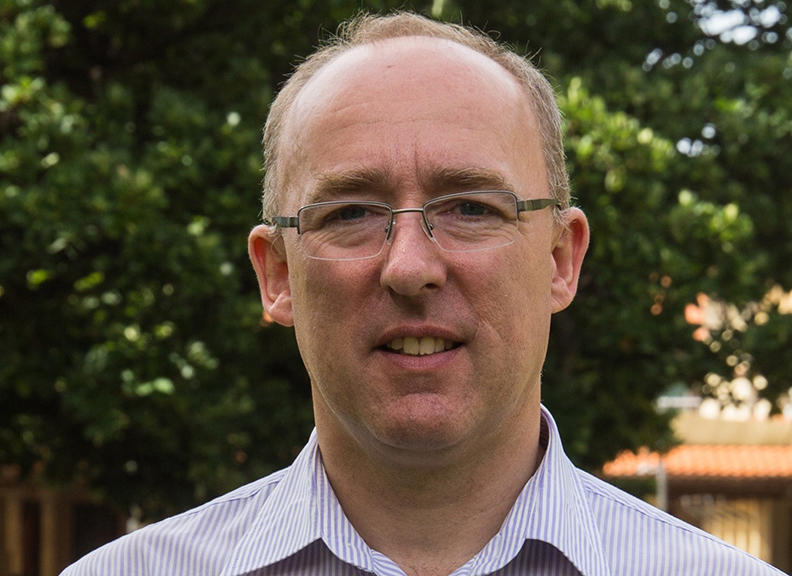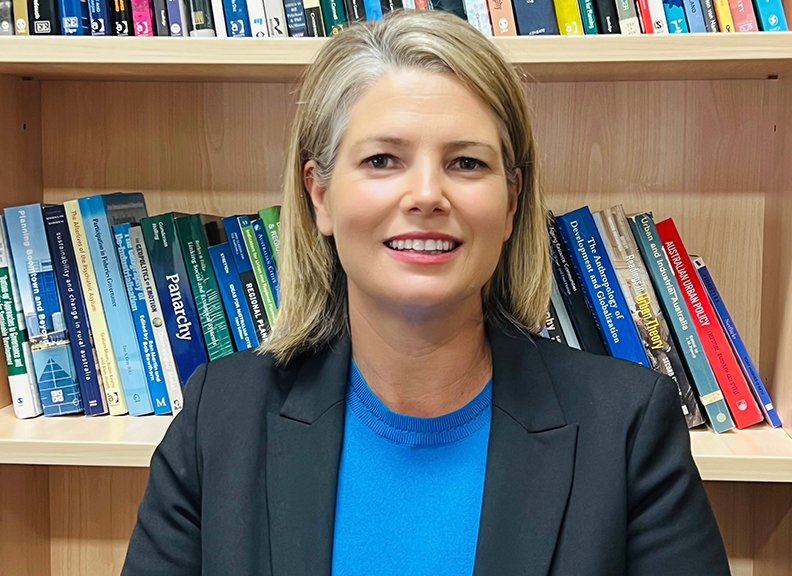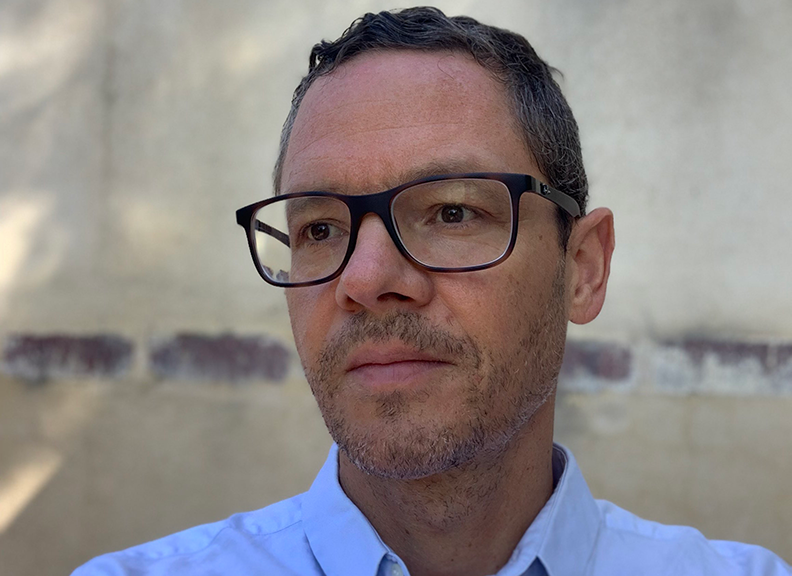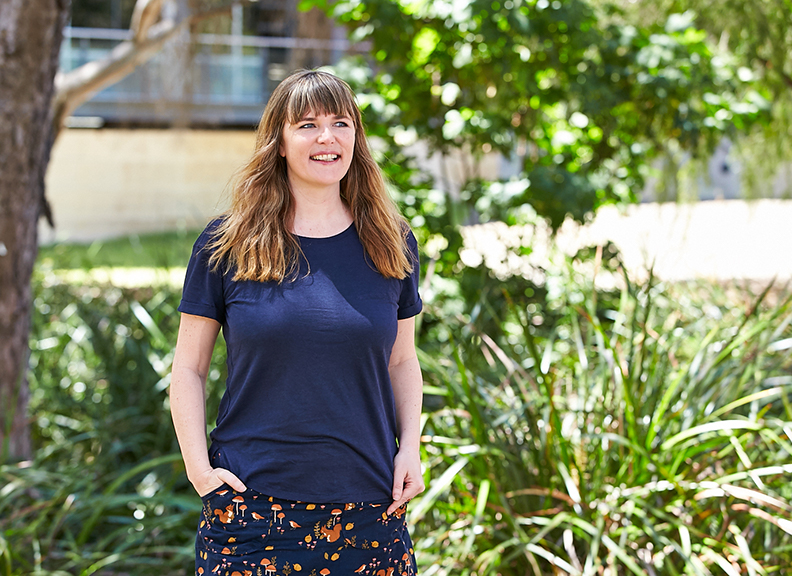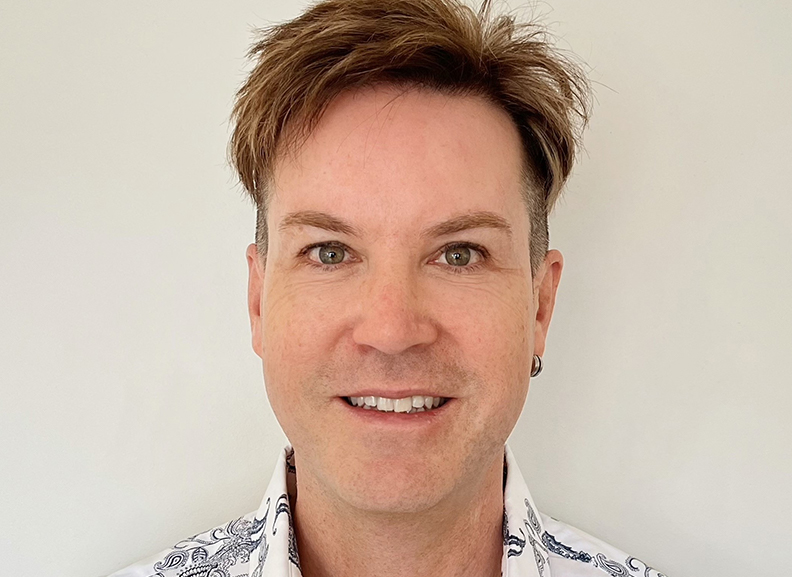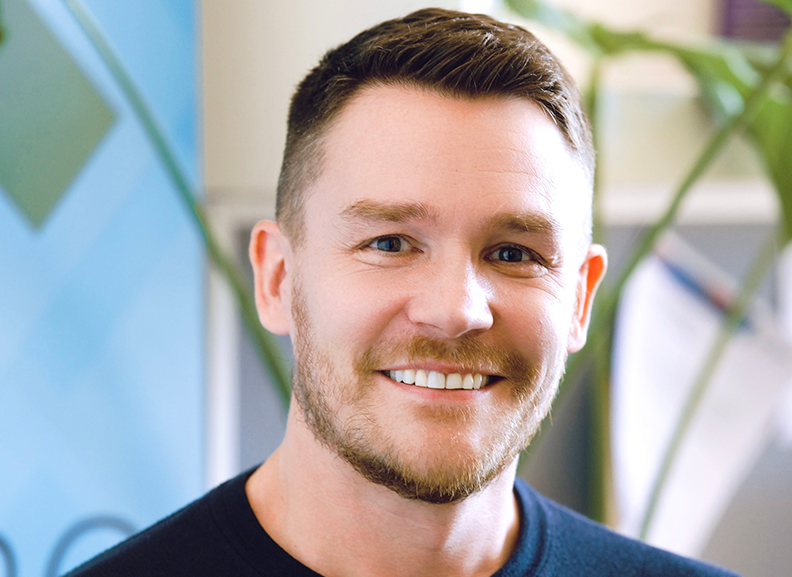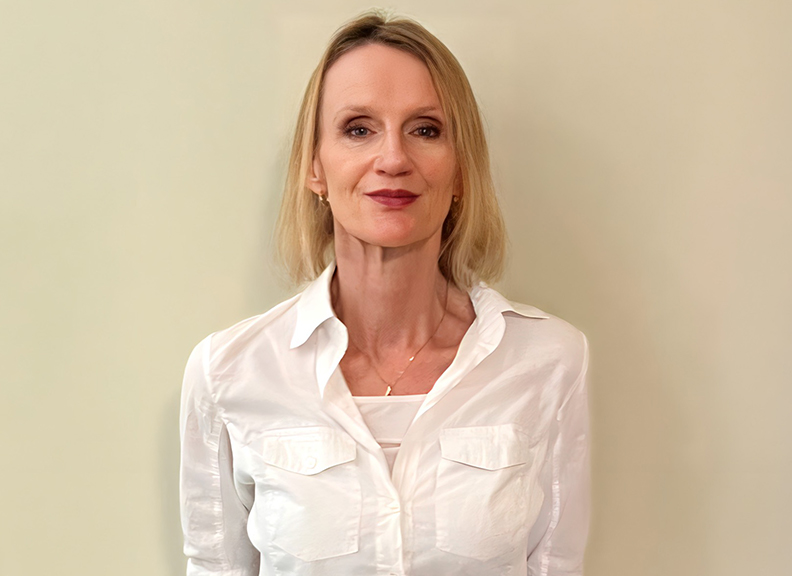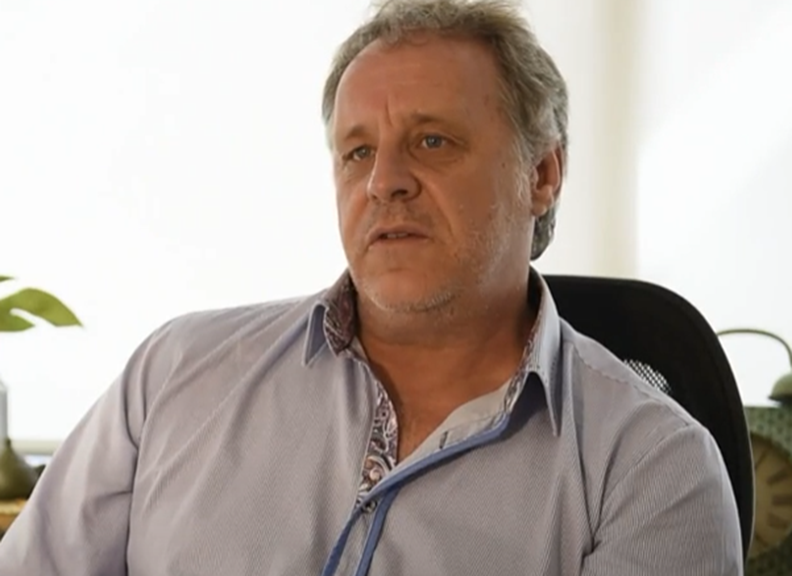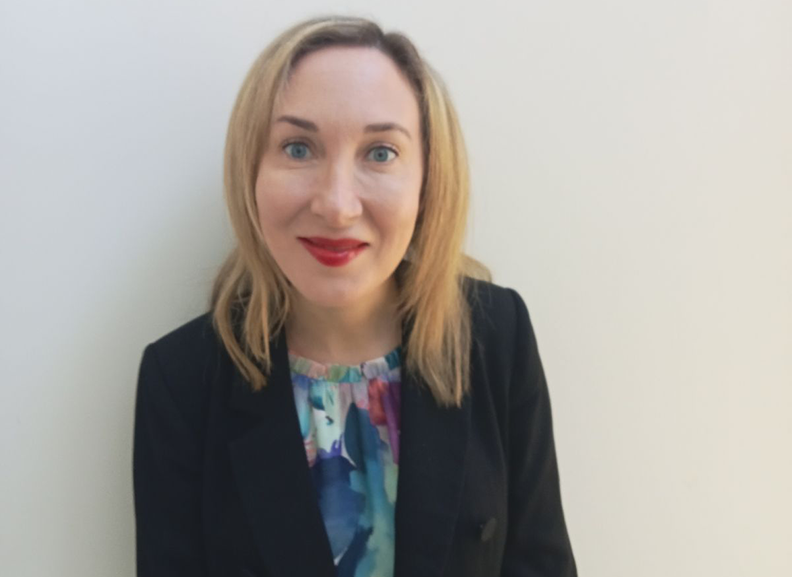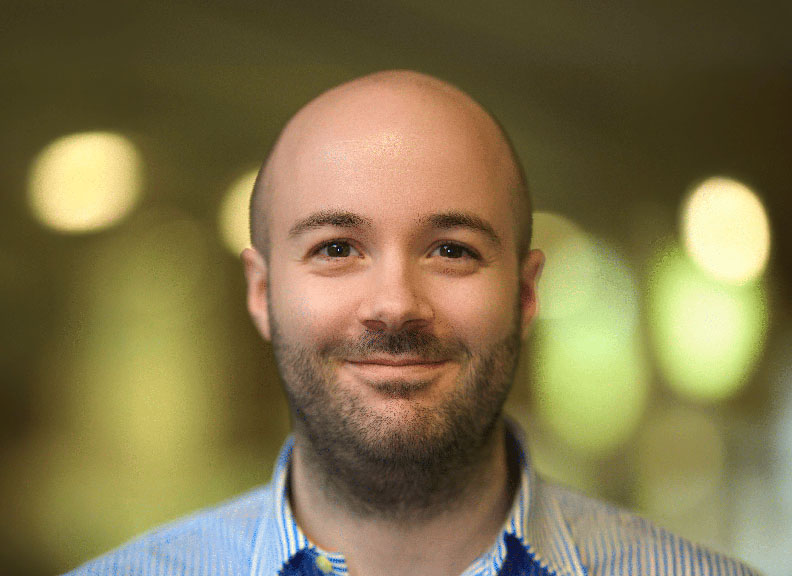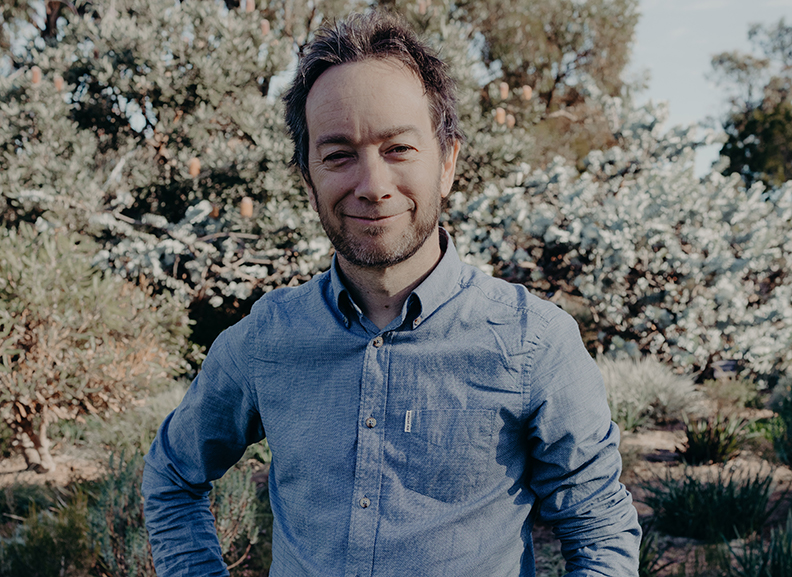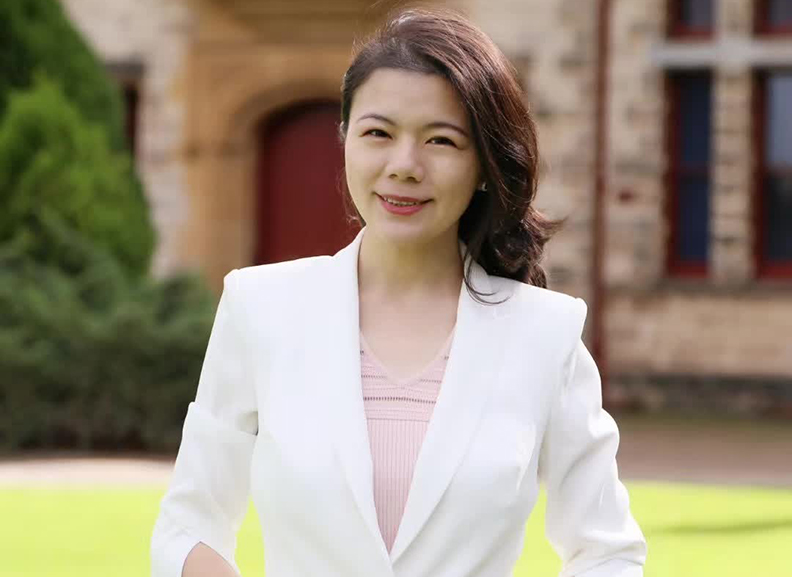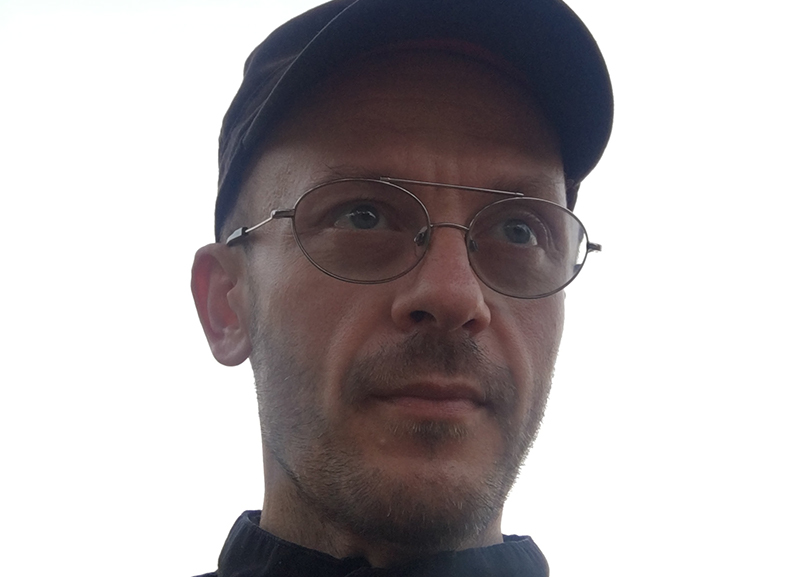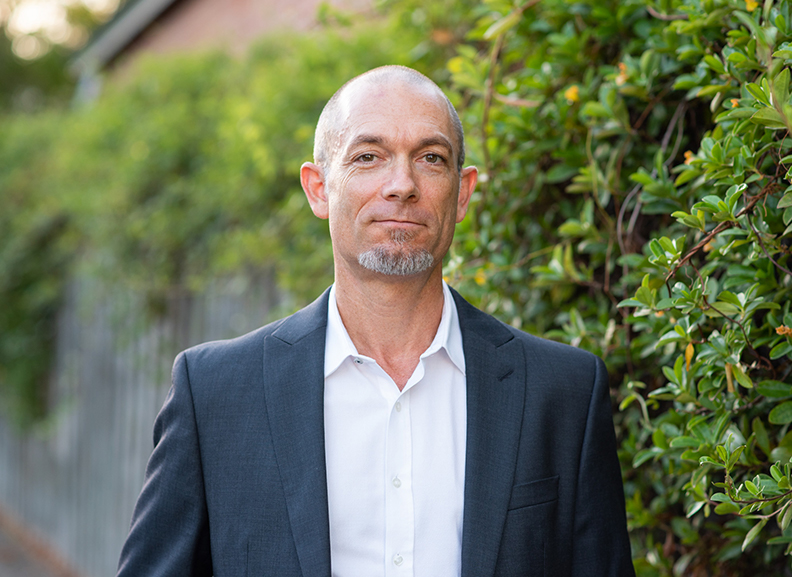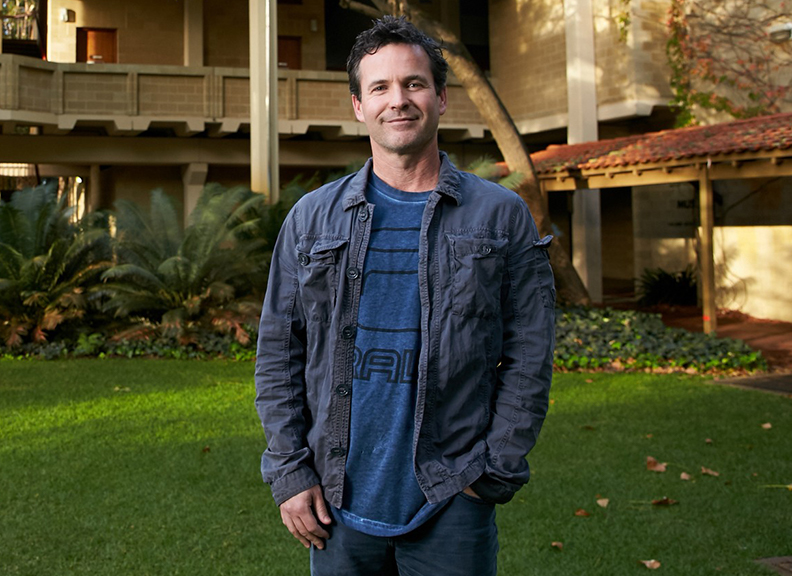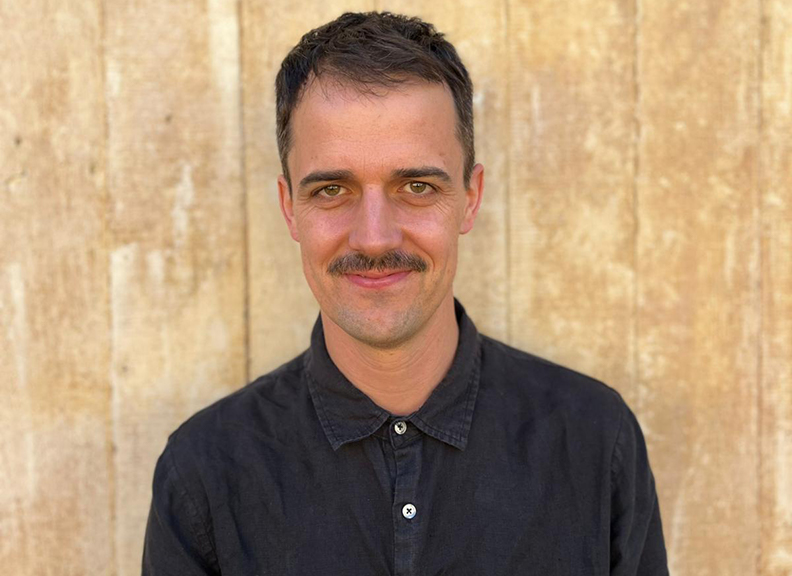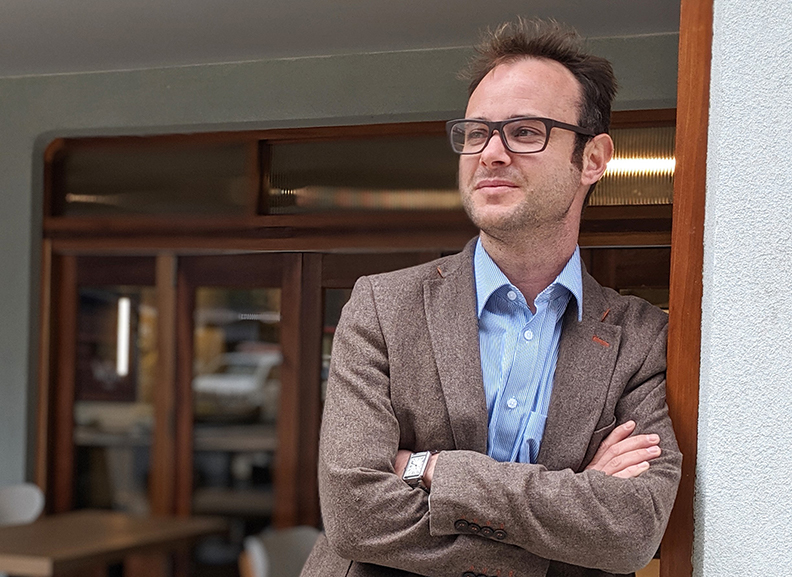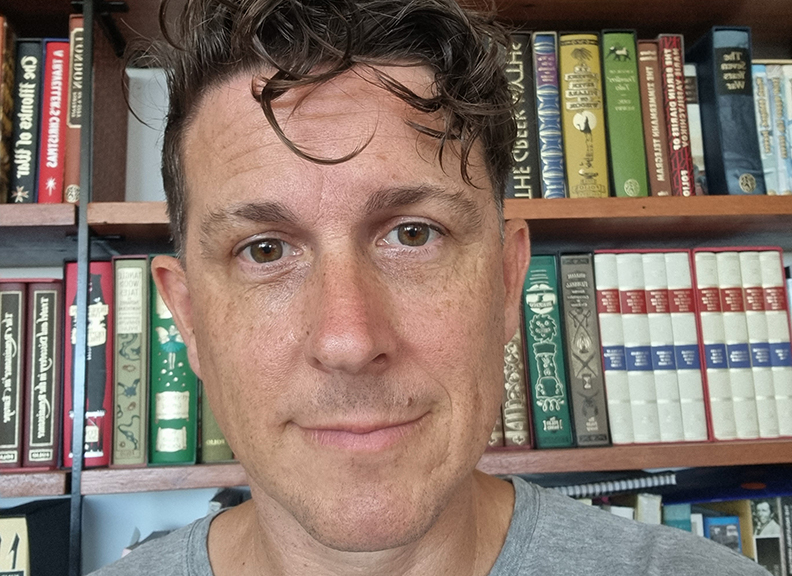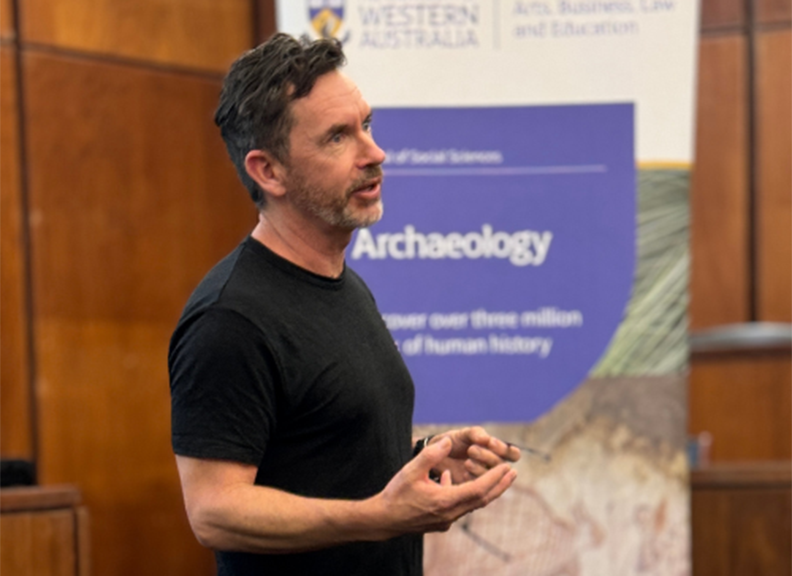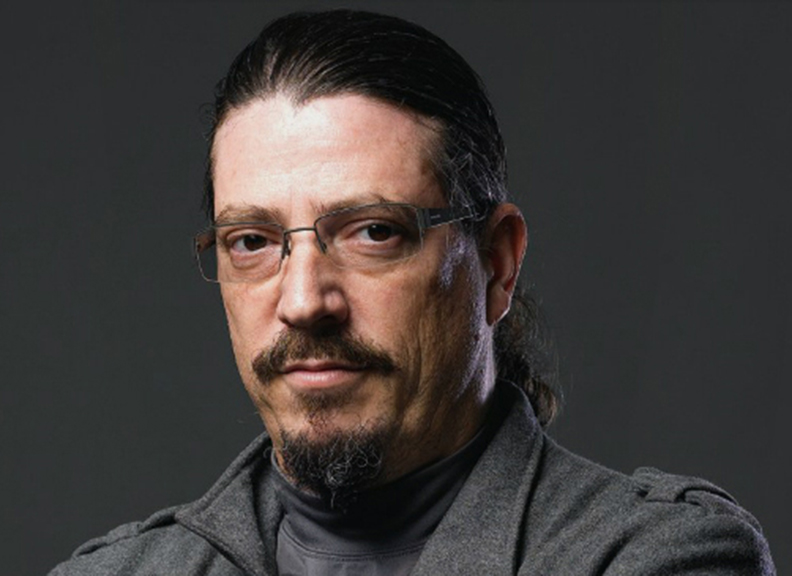Frontier Technologies and Society Research Lab
The Frontier Technologies and Society Research Lab engages with the ongoing high-tech advances transforming our world.
Innovations in artificial intelligence, automation and robotics, the Internet of Things, virtual and extended reality (VR and XR), electric vehicles (EV), biotechnology and renewable energy systems are progressively inflecting the varied domains of life, from communication and creativity to education, media, transport, trade, healthcare, defence and beyond.
These innovations are unfolding across natural and built environments, extending the boundaries of human perception, understanding, and experience and conditioning how we work, play, relate with each other and occupy the more-than-human world.
The Lab focuses on the technologies of such frontier-making, gathering research leaders across the social sciences, arts and humanities around the investigation of their historical and contemporary applications and their evolving implications for a gamut of political, social, economic and cultural processes.
Our researchers collaborate with government, industry, and community sectors, aiming to drive innovation, facilitate public understanding, inform policy and practice and align the development and use of frontier technologies with social needs, ethical standards, and environmental sustainability.
We are committed to creating a productive and supportive setting for researchers, encouraging experimentation, innovative thinking, collaboration, and impactful outcomes.
The Lab is co-directed by Dr Katarina Damjanov, Professor Benjamin Smith and Professor Amanda Davies.
Policy Spotlight on Frontier Technologies Shaping Australia's Future
Our experts spotlight some of the pressing policy issues surrounding the impact of frontier technologies on Australian society.

Our People
Katarina Damjanov
Katarina Damjanov
Co-Director
Katarina works across media and communication, public culture and governance. Her research engages with the changing relationship between technology, society and environment, focusing on emerging infrastructures on and off the Earth. She is one of the key researchers leading the development of social studies of outer space and she has widely published, presented and collaborated on a range of space-related academic, industry and community projects and events. Katarina also has a keen interest in Earth-based media issues, in particular those surrounding digital cultures, automation, interactive technologies and mobility futures.
Benjamin Smith
Benjamin Smith
Co-Director
Benjamin Smith is a specialist of rock art, heritage and digitisation. For more than 30 years he has led rock art recording, interpretation, management and tourism projects in Africa, Asia, Australia and Europe. He directed the world’s leading rock art research institute for more than a decade. He led a project to digitise the rock art records of Africa, creating the largest online rock art digital archive in the world. At UWA, he is lead CI on the Digitisation Centre of Western Australia. The Centre seeks to digitise the most significant cultural collections of Western Australia within a decade. He is the President of the ICOMOS International Scientific Committee on Rock Art and Professor of Archaeology (World Rock Art).
Amanda Davies
Amanda Davies
Co-Director
Professor Amanda Davies is a social scientist with expertise in demography, population geography and rural and regional development. Her research focuses on examining population growth, distribution and patterns of demographic change, particularly in response to economic, social or climatic challenges. As an applied researcher, Amanda works closely with industry and government to deliver timely and relevant information to inform policy. She is one of Australia’s leading public commentators on population and demographic issues. Through her partnerships with government and industry, Amanda’s work explores the application of emerging and innovative social science methods, with a focus on linking data sets to enable longitudinal or comparative spatial work.
Clas Weber
Clas Weber
Principal Fellow
Clas Weber is a DECRA fellow and Senior Lecturer in Philosophy. His research focuses on foundational issues in the philosophy of language, the philosophy of mind, and metaphysics. His current ARC project investigates the philosophical foundations of mind uploading, which aims at transitioning human persons from their biological organism to an electronic hardware. The project syntheses recent developments in artificial intelligence research with traditional themes from philosophy. Clas is also pursuing an ongoing interdisciplinary research program at the intersection of linguistics, economics, and philosophy, which has shown that the structure of our language has a significant impact on important socio-economic outcomes.
Tracy Redhead
Tracy Redhead
Principal Fellow
Tracy Redhead is a versatile musician, composer, researcher, and producer with almost 30 years of experience in the music industry, interactive media, and music technology. From her roots as a singer-songwriter to pioneering interactive music projects, Tracy’s career reflects a deep passion for innovation and creativity. She holds a Master of Arts and a PhD in Music and is currently the Chair of Contemporary Popular Music and a lecturer in Electronic Music and Sound Design at The University of Western Australia. Her research explores the impact of interactive technologies on music-making, drawing connections between creative practice, artificial intelligence, video game composition, the music industry, and audience engagement.
Mark Pegrum
Mark Pegrum
Principal Fellow
Professor Pegrum's current research focuses on mobile and emerging technologies, including extended reality (XR) and generative artificial intelligence (AI); digital literacies, including attentional literacy and AI literacy; and the forms digital learning takes in diverse contexts across the Global North and South. Mark's books include: Brave New Classrooms: Democratic Education and the Internet, co-edited with Joe Lockard (Peter Lang 2007); From Blogs to Bombs: The Future of Digital Technologies in Education (UWA Publishing 2009); the first edition of Digital Literacies, co-authored with Gavin Dudeney and Nicky Hockly (Pearson 2013); Mobile Learning: Languages, Literacies and Cultures (Palgrave Macmillan 2014); Mobile Lenses on Learning: Languages and Literacies on the Move (Springer 2019); and the second edition of Digital Literacies, again co-authored with Nicky Hockly and Gavin Dudeney (Routledge 2022).
Ionat Zurr
Ionat Zurr
Principal Fellow
Associate Professor Ionat Zurr is an artist and a researcher who formed the Tissue Culture & Art Project in 1996 which led to the establishment of SymbioticA Laboratory the Centre of Excellence in Biological Arts, UWA (2000-2023). Zurr is considered as one of the pioneers in the field of Biological Art (AKA Bioart). Her recent research concerns with the automation and/of life especially in areas of Regenerative Biology, Synthetic Biology and Cellular Agriculture. She published extensively and her recent co-authored book: Tissues, Cultures, Art (2023) is available through Palgrave McMillan. Zurr often works in collaboration with other artists and scientists and have developed a body of work and projects which reach beyond the confines of art; her work is often cited as an inspiration to diverse areas such as new materials, textiles, design, architecture, ethics, fiction, and food. Zurr exhibited in places such as Pompidou Centre in Paris, MoMA NY, Mori art Museum, GoMA Australia, Ars Electronica, National Art Museum of China, YCAM Japan and more.
Paul Harrigan
Paul Harrigan
Principal Fellow
Paul is an internationally recognised expert in digital marketing; specifically harnessing big data to understand how people engage with, and are impacted by, social media. He investigates important multidisciplinary topics, including misinformation, polarisation, influencers, and artificial intelligence. He has published his research in over 60 international journal articles and books, and presented it at over 60 international conferences. Paul is also an Adjunct Professor at IESEG School of Management, and Vice-President of the Australia and New Zealand Marketing Academy (ANZMAC).
Grace Oakley
Grace Oakley
Principal Fellow
Grace Oakley’s research centres on the integration of digital technologies in education, with a particular emphasis on language and literacy education in schools. Pedagogical practices that have been the focus of her research to date include the use of extended reality (XR) for teaching Literacy in Science in primary school, virtual exchanges of multimodal ebooks for language learning and enhanced cultural awareness, and the use of mobile technologies such as iPads to enhance language and literacy learning. She is currently interested in researching the affordances and effects of artificial intelligence in language and literacy education.
Brett Smith
Brett Smith
Principal Fellow
Brett Smith is a researcher and academic at The University of Western Australia, specialising in transport and land-use planning. His expertise spans autonomous vehicle adoption, public transport demand, and economic evaluation of transport policies. Brett also investigates blockchain in food supply chains and explores algorithmic management's impact on gig workers' rights and entitlements. His work integrates microeconomic analysis, choice modelling, and experimental design to address challenges in urban mobility, logistics, and labour equity. Passionate about sustainability and social justice, Brett's research supports decision-makers in enhancing resilience, efficiency, and fairness across transport systems and emerging digital economies.
Marilyn Bromberg
Marilyn Bromberg
Principal Fellow
Associate Professor Marilyn Bromberg is an academic at the UWA Law School, a practising lawyer and an adjudicator for the WA Department of Communities. In terms of her research, she is passionate about making a positive difference. Her main research areas are social media and the law, Body Image Law and Health Law. Marilyn has authored/co-authored about 40 peer reviewed articles, been a lead investigator or chief investigator on over $225,000 of research grants and presented her research at the Australian Federal Parliament, Harvard University and the Supreme Court of Canada, among other venues.
Jason Weismueller
Jason Weismueller
Principal Fellow
Jason is a researcher and academic at The University of Western Australia, specialising in the spread of misinformation on social media and ways to mitigate its negative consequences. His work combines the analysis of big data from social media (e.g., textual and visual characteristics of posts) with experiments to develop a comprehensive understanding of the misinformation problem. He has published his research in internationally leading journals such as Information Systems Journal and contributes to media outlets such as The Conversation.
Julian Bolleter
Julian Bolleter
Principal Fellow
Julian Bolleter is the Director of the Australian Urban Design Research Centre (AUDRC) at The University of Western Australia, the Program Director of AUDRC’s Master of Urban Design course, and an author and public figure. Julian leads an ambitious climate adaptation project, ‘Future climate, future home: adaptive urban design strategies for WA’ with AUDRC partner organisations Development WA, the Department of Communities, the Western Australian Planning Commission, and multiple Local Governments. He has received a stream of awards for his research, including the UWA School of Design's Mid-Career Research Award,’ in 2023.
Maggie Ying Jiang
Maggie Ying Jiang
Principal Fellow
Maggie is an expert in cross-cultural strategic communication. Her research interests include cross-cultural communication, ethnic media, and public relations. Maggie has published three sole-authored academic books and numerous high-impact articles. Maggie's work has been featured in many high-profile media outlets, including the Washington Post, Wall Street Journal, VOA, ABC, CNN. She is currently working on two projects: a book with Springer Nature offering a pioneering global perspective on the Spiral of Silence phenomenon in the age of social media, and a project examines the often-underestimated role of migrant media in shaping public opinion within their respective communities.
Vladimir Todorovic
Vladimir Todorovic
Principal Fellow
Vladimir Todorović is an artist and educator based in the Whadjuk region, Australia, where he teaches generative (AI) arts, digital arts and animation. He serves as the Head of Fine Arts in the School of Design at UWA. His art explores humanity's relationship with the changing environment and our misuse of past, current, and future technologies. To make art, he critically employs emerging technologies for immersive and generative storytelling, examining their hidden layers that enable the exploitation of various life forms. His projects have received multiple awards and have been showcased at more than three hundred festivals, exhibitions, museums, and galleries worldwide.
Ethan Blue
Ethan Blue
Principal Fellow
Ethan Blue is Associate Professor in History and an award-winning educator at the University of Western Australia. His research sits at the intersection of critical prison studies and histories of immigration, racial capitalism, and settler colonialism, and he has written widely in these fields. Blue’s major publications include The Deportation Special: A History of America through Forced Removal (University of California Press, 2021), Doing Time in the Depression: Everyday Life in Texas and California Prisons (New York University Press, 2012), and the co-authored Engineering and War: Militarism, Institutions, Ethics, Alternatives (Morgan and Claypool, 2014).
Chris Tonkin
Chris Tonkin
Principal Fellow
Dr Chris Tonkin is Chair of Electronic Music and Sound Design at the UWA Conservatorium of Music. His creative output comprises compositions in the acoustic and electronic domains, performances with live electronics, sound installations and recording as producer. Notable works include his sound installation/algorithmic producer Mississippi Swan (with Richard Snow, Tulane), exhibited at the Science Gallery Dublin, and the New Orleans Jazz Festival. His 90 minute live score for the 1922 silent film Nosferatu, was performed with Claire Edwardes’ Ensemble Offspring at theatres and galleries on an east coast tour. Chris has also produced several recordings, notably that of the piano, percussion and electronic repertoire of Australian composer Roger Smalley with Adam Pinto and Paul Tanner.
Ari Jerrems
Ari Jerrems
Principal Fellow
Ari’s research is in the areas of critical security studies, critical border studies and political geography. His work is primarily concerned with theorising the spatial and temporal dimensions of global politics. As part of this, he is particularly interested in how security technologies reconfigure how borders and notions of territory are conceived, enacted and experienced. He is convenor of the Australian Critical Border Studies Network and the Political Geography Study Group of the Institute of Australian Geographers.
Josh Brown
Josh Brown
Principal Fellow
Josh is a historical sociolinguist. His main interests lie in historical processes of standardisation and non-standard language varieties in non-literary writing. Josh is interested in digital humanities approaches to multilingual textual data from the past, and issues of mapping, stemming, and corpus representation. He has specific interests in language change in the history of standard Italian and Gallo-Italian varieties; historical multilingualism in the Italian peninsula; language/dialect contact and language ideology in the Early Modern Period. Much of the material he works with makes use of unpublished and unconventional archival manuscripts to deal with questions of linguistic variation in the past.
Jonathan Albright
Jonathan Albright
Principal Fellow
Dr Jonathan Albright is a Senior Lecturer in Media and Communication. His research delves into the emerging information sphere, the impact of AI and algorithms on shaping discourse, and media analytics. Using open tools and data, innovative methods, and cross-disciplinary collaborations for investigations, Dr Albright’s pioneering work has been instrumental in exposing the underlying mechanisms of global influence campaigns, understanding the flow of information on platforms, and for highlighting critical issues in tech accountability. His future work seeks to explore and address future information threats to ensure a more informed and resilient public sphere.
Ky Gentry
Ky Gentry
Principal Fellow
Ky comes to the digital humanities primarily as a developer, having been centrally involved in the development of large-scale digitisation platforms and digital community heritage projects for state and national government in Australia and New Zealand. As a researcher of governance and human rights, Ky also has a particular interest in the geopolitical contestation around AI governance, the wider human rights implication of the new technologies, and the sociology of the digital turn.
Ronnie Das
Ronnie Das
Ronnie Das is an Associate Professor in Data Analytics. His research interests include Digital Transformation, IoT and Big Data Analytics in process optimisation, managerial and consumer decision-making. Ronnie had an extensive academic career in the UK Higher Education before joining UWA. He has served as a committee member and workstream lead for many UKRI funded projects. He has also been involved in many academic leadership roles throughout his career. His work involving Smart Cities was highlighted by the World Economic Forum.
Alistair Paterson
Alistair Paterson
Principal Fellow
Professor Alistair Paterson is Chair of Archaeology at The University of Western Australia, on the Oceans Institute Executive Research Team, a Research Associate at WA Museum, and Associate Investigator on the Australian Research Council Centre for Excellence for Indigenous and Environmental Histories and Futures.
His key archaeology research investigates the colonial and modern world in Australia and the Indian Ocean, with projects focussed on Aboriginal Australia, Western globalisation, rock art, cybernetics and infrastructure, and the history of collecting.
Oron Catts
Oron Catts
Principal Fellow
Oron Catts is a multidisciplinary scholar, artist, researcher and curator whose pioneering work with the Tissue Culture and Art Project which he established in 1996 is considered a leading biological art project. Catts main research interest is Life; more specifically the shifting relations and perceptions of life in the light of new knowledge and its applications.
He is the Academic Lead/Director, UWA’s Institute of Advanced Studies. He co-founded and directed of SymbioticA, a biological art research center at The University of Western Australia (2000-2024), now an independent lab. Catts was a Research Fellow in Harvard Medical School, a visiting Scholar at the Department of Art and Art History Stanford University, a Professor at Large in Contestable Design at the Royal College of Arts, London and a visiting Professor at Aalto University. Catts curated more than a dozen exhibitions, developed numerous artistic projects and performances. Publish widely and exhibits internationally. His work was exhibited and collected by museums such as Pompidou Centre in Paris, MoMA NY, Mori art Museum, NGV, GoMA, Yerba Buena Center for the Arts, San Francisco, Ars Electronica, National Art Museum of China and more. His research was covered by The NY Times, Washington Post, Wired, New Scientist, Time, Newsweek, Nature, Science, and other TV, radio, print and online media.
Catts’ ideas and projects reach beyond the confines of art; his work is often cited as inspiration to diverse areas such as new materials, textiles, design, architecture, ethics, fiction, artificial life, and food.
External Fellows

Rob Cover
Rob Cover is Professor of Digital Communication and Director of the RMIT Digital Ethnography Research Centre. He leads a number of major funded research projects on digital harms, young people and wellbeing, and gender/sexuality diversity in screen contexts. The author of around one hundred journal articles and chapters, he publishes widely on topics related to digital cultures in the context of social identities, young people, suicide prevention and resilience. His recent books include: Identity and Digital Communication: Concepts, Theories, Practices (Routledge 2023), Identity in the COVID-19 Years: Communication, Crisis, and Ethics (Bloomsbury 2024) and Queer Memory and Storytelling: Gender and Sexually-Diverse Identities and Trans-Media Narrative (with R Prosser, Routledge 2024).

Weiqiang Lin
Weiqiang Lin is Associate Professor at the Department of Geography, National University of Singapore. He is a Cultural Geographer who is interested in mobilities and infrastructures of moving. Variously, his research projects have included: the production of airspace in Southeast Asia; the discursive and technological framings of air logistics in Singapore and China; and, more recently, labour and automation in four of Asia’s biggest international airports. In 2025, he will be embarking on a pilot study to explore the diverse impacts of digital technologies on post-pandemic futures of work among youths. When he is not at his desk, he can be found indulging in long hikes, ocean sports and landscape photography.

